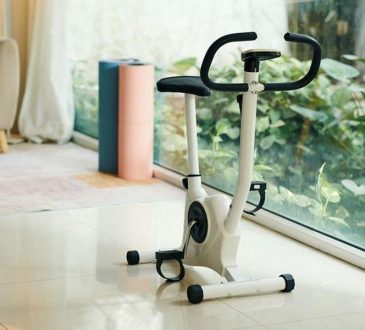Physiotherapy vs General Exercise: What Works Better for the Elderly?

Maintaining mobility in later years supports independence and quality of life. Many elderly people engage in general exercise to stay active, but structured physiotherapy provides more focused benefits. Physiotherapy for elderly patients integrates medical assessment, controlled movements, and professional supervision to address mobility limitations and chronic pain. Understanding their differences helps in choosing the right approach for long-term physical well-being.
General Exercise for the Elderly
General exercise keeps the body moving through simple activities like walking, stretching, or light resistance workouts. It enhances circulation, joint flexibility, and overall stamina. Seniors engaging in regular exercise experience reduced stiffness and better balance.
However, general exercise lacks the medical assessment and customisation present in physiotherapy. While it improves overall health, it may not effectively target chronic pain, post-surgery recovery, or muscle degeneration. Seniors with conditions like arthritis, osteoporosis, or balance issues can risk injury without professional supervision. Exercise remains beneficial but requires moderation, especially for those with restricted mobility or pre-existing ailments.
Physiotherapists understand how ageing affects muscle strength and joint stability. Their guidance ensures exercises stay within safe limits, preventing unnecessary strain. In contrast, unsupervised routines may lead to improper posture or movement, aggravating discomfort. The elderly population benefits from structured activity that addresses their unique physical limitations rather than following a one-size-fits-all exercise plan.
How Physiotherapy for the Elderly Promotes Safer Movement
Physiotherapy for elderly individuals focuses on medical rehabilitation, not just exercise. Each session involves evaluating muscle condition, joint range, and pain triggers before introducing targeted therapy. Controlled stretching, resistance exercises, and balance training improve function while minimising injury risk.
A licensed physiotherapist designs progressive programmes that build endurance gradually. Sessions can involve manual therapy, hydrotherapy, or assisted walking to restore coordination. Elderly patients recovering from falls or surgeries often regain movement faster under professional supervision. Continuous monitoring ensures steady improvement while adjusting intensity when needed.
Beyond recovery, physiotherapy enhances confidence in performing daily activities like standing, walking, or climbing stairs. Older adults often face a fear of falling, which limits mobility. Regular sessions at a rehab centre in Singapore help them strengthen weak muscles and regain stability. Physiotherapy restores motion with precision, helping patients maintain independence without risking injury.
The Role of a Rehab Centre in Singapore for Elderly Care
A rehab centre in Singapore provides an ideal environment for elderly rehabilitation. Supervised by trained physiotherapists, such facilities offer equipment and therapies tailored to age-related conditions. Treatment focuses on muscle strengthening, joint stability, and balance retraining.
Elderly patients attending sessions receive individualised programmes based on their condition, mobility level, and recovery goals. Therapists assess progress regularly to adjust routines and ensure consistent improvement. Access to advanced equipment, hydrotherapy pools, or parallel bars allows safe exercise even for those with limited strength.
Structured physiotherapy inside a rehab setting also builds motivation. Regular interaction with professionals helps seniors stay committed, unlike self-led home exercises that can lose consistency. Beyond physical recovery, sessions encourage social engagement, which supports emotional health.
A professional facility’s controlled environment promotes effective healing and safety. Physiotherapists ensure every movement aligns with medical standards, making rehabilitation more effective than general exercise routines done independently at home.
Comparing Outcomes: Physiotherapy vs General Exercise
General exercise enhances cardiovascular health and flexibility but may not address underlying issues like joint degeneration or muscle imbalance. Physiotherapy for elderly individuals, however, targets these areas directly. Every movement during therapy supports recovery from injury or prevents complications from age-related conditions.
For seniors managing chronic pain or mobility issues, physiotherapy provides structured guidance. Sessions can integrate strength conditioning, gait training, and therapeutic massage. This holistic approach ensures physical improvement without overexertion. In contrast, generic workouts can cause muscle strain if done incorrectly.
Outcomes depend on personal health status, but physiotherapy delivers measurable recovery under professional observation. Physiotherapists adapt treatments to conditions such as post-surgery stiffness or neurological impairment, ensuring exercises align with recovery capacity. The controlled progression makes physiotherapy more sustainable for long-term mobility maintenance.
Choosing the Right Approach for Long-Term Health
Elderly individuals should consider medical guidance before starting any exercise or therapy plan. Those with chronic illnesses, joint problems, or limited movement benefit more from physiotherapy. It ensures structured improvement under professional care, reducing the risk of complications.
General exercise remains suitable for those with stable health seeking light activity. However, as mobility challenges grow, shifting towards physiotherapy enhances safety and effectiveness. Seniors experiencing pain, balance issues, or post-surgery weakness recover better under the supervision of qualified physiotherapists at a rehab centre in Singapore.
A combined approach may also work, where physiotherapy sessions complement gentle home exercises. Regular reassessment ensures sustained improvement without strain. Selecting guided physiotherapy ensures that elderly individuals stay active safely while maintaining physical confidence in everyday movement. Ageing bodies benefit from proper care and guided recovery. Start restoring strength and mobility safely by reaching out to Rehab & Beyond for a professional physiotherapy service in Singapore designed for elderly patients.







